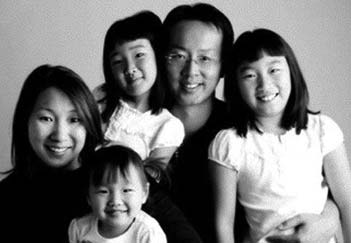Homer Tien Appointed
the Major Sir Frederick
Banting Chair
"Avery Nathens and I have been collaborating for more
than a year in the development of a combined trauma
program, starting while Avery was still at St. Michael's.
We have organized a single fellowship in Trauma, as well
as Joint Trauma Protocols and Joint Rounds. The fellows
find the experience very enriching, as they see how
different surgeons and others in the trauma programs
of the 2 hospitals differ in their approaches. The fellowship
has attracted excellent candidates from Canada
and United States. This is a quantum leap for trauma in
terms of scholarship and organization as well as care. The
University of Toronto name provides great branding and
gives us one voice, so that we can deal much more effectively
with external agencies like the emergency medical
transportation and government organizations. Avery
brings great experience. Najma Ahmed is the Interim
Director of Trauma at St. Michael's Hospital as well as
the Program Director for General Surgery.
"Canadian Forces have a great relationship with academic
centers by embedding their surgeons. In academic
centers, we can keep our trauma skills up. We bring
advances which often come from the military. The military
has less research expertise, for example, in running
randomized controlled trials. Sandro Rizoli's randomized
controlled trial on transfusion was based on an idea from
the war in Iraq, but had the advantage of the academic
infrastructure.
"The Major Sir Frederick Banting Chair in Military
Trauma Research recognizes the value of the academic
centres for the military. In this role, I can seek civilian
collaborators and fund research costs from the military
budget. This is generally done as a block grant that comes
with the Chair, but I can also go to the Department of
Defense and others for more funds based on this entry
access. It's a door to the Department of Defense.

Homer Tien with Vivian and their three daughters Evalyn, Julia, and Abigail
What advice would you give to a student based on your
experience?
"There is a traditional model for entering academic
surgery. I went the non-traditional route, through the
military. I was very fortunate to have Andy Smith, Robin
Richards, Richard Reznick and Fred Brenaman as encouraging
and thoughtful mentors. I originally intended to
go into community general surgery. I was at Sunnybrook
when 9/11 occurred. I signed up for the fellowship in
Trauma and did research with Robin McLeod and Sandro
Rizoli and Don Redelmeier as my academic mentors.
My Master's Degree was in Clinical Epidemiology where
I studied the causes of death in military personnel. The
study was based on autopsy records kept in Ottawa. I
spent the first year full time in research, the second year
part-time while deploying some of the time for military
duty. Frederick Banting was a military man." Homer had
a lot to do with the development of the Chair, and he
chose Sir Frederick Banting as the appropriate symbol.
|
Few know that Sir Frederick had a military career. He
received the Military Cross for heroism in the battle of
Cambrai, France during World War I. While serving as
a medic, he tended the injuries of other soldiers for 16
hours despite his own wound. He later died of wounds
and exposure following a plane crash during World War II
en route to England to conduct research for the Canadian
Air Force. "He led military research for the Canadian
Forces in an era before there was a CIHR. He greatly preferred
to be a frontline surgeon, compared to conducting
research. He had already made his monumental contribution-
the discovery of insulin. I can relate to his preference
to be a frontline surgical officer."
Homer lives across the street from Sunnybrook. His
wife Vivian has a dental practice in Stouffville and they
have three children, ages 12, 10 and 6. 12 year old
Abigail is a regional soccer player, involving the family in
considerable travel. 10 year old Julia is a basketball and
violin enthusiast.
His mentors in the military were doctors Hans Jung
and J.R. Bernier, who were successively Surgeons-General
in the Canadian Forces. "Both were great facilitators and
importantly supported the publication of Canadian Forces
supplements in the Journal of Trauma, the Canadian
Journal of Surgery and the journal Injury, providing a
repository of information to educate surgeons about the
distinctive injuries that are characteristic of wartime, and
to focus attention on war-related trauma research.
Currently there are several military surgeons in our
department in addition to Homer: Andrew Beckett is a
trauma fellow at St. Mike's, Dylan Pannell is a PGY2 in
General Surgery, Josh Mayich is an orthopaedic fellow
at St. Mike's. Gerald Slobogan was a fellow with Mike
McKee and is now transferred to Vancouver. There are
other military doctors in family medicine, intensive
care and other programs. Queen's University has family
medicine military people and Homer has added lectures
to help train them in military trauma. He has also added
didactic training in the Trauma section of our surgical
residency, so that our residents are familiar with CBRI
(i.e. chemical, blast, ballistic, biological radiation injury
and mass casualty management).
"Surgery is a great adventure and a privilege. Patients
walk in and trust you after 10 minutes exposure or less,
based in large part on our University of Toronto training
program. You can't view it as job and you have to love it."
What are the ethical issues that you face in your practice?
"The largest is bed occupancy and patient flow. Making
beds available is complicated by the fact that patients like
to stay at our centres. The rapport and trust that develops
during their care makes them say ‘We don't want to
leave' when it's time to transfer them to their own doctor
or hospital. The second is resource allocation – triage is
an essential skill in trauma surgery."
M.M.
|